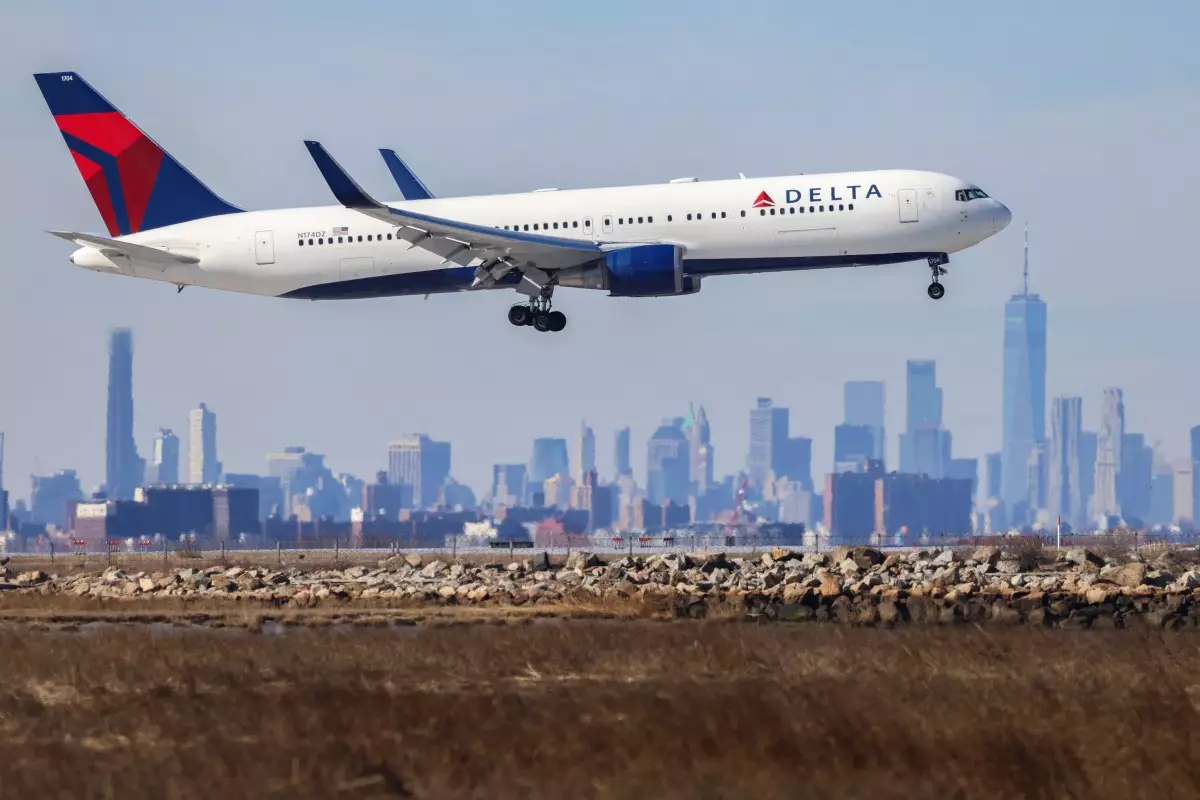In recent years, Delta Air Lines has steadily established itself as a significant player at the Consumer Electronics Show (CES), showcasing its commitment to innovation and technology in the aviation sector. The airline’s decision to rent out the Sphere this year for its keynote address is a testament to its ambitions to make an impact and capture the attention of industry leaders and consumers alike. As the landscape of air travel evolves, Delta aims to position itself at the forefront by integrating cutting-edge technology into its services.
One of the standout announcements from Delta at CES 2025 was the introduction of an AI-powered assistant, aptly named the Delta Concierge. This feature is designed to enhance the passenger experience by providing real-time assistance through voice or text-based interactions. While the idea of utilizing artificial intelligence in customer service is not new, the implementation of such technology by an airline raises important questions about its actual utility. Although the Delta Concierge promises proactive notifications regarding passport expirations and visa requirements, these features appear to align more closely with basic service offerings rather than groundbreaking innovation.
This sentiment was echoed by industry observers who noted that much of what the Delta Concierge offers is already encompassed within the existing frameworks of consumer technology. The excitement over AI in this context seems somewhat muted, given that simple reminders regarding travel documentation are not particularly challenging problems to solve. Therefore, while the initiative may streamline communication, it seems to be more about maintaining competitiveness than truly redefining the travel experience.
Delta’s announcement of an upgraded in-flight entertainment system is another key component of its strategy to modernize passenger experience. Marketed as the “first cloud-based in-flight entertainment system,” it boasts impressive features, including 4K HDR QLED displays and Bluetooth connectivity. Given that other airlines, such as United, have already introduced similar technology, Delta’s updates may feel like a response to the competitive environment rather than a pioneering step.
Moreover, the anticipated launch date of 2026 raises concerns about whether Delta can maintain its relevance as advancements in technology continue to accelerate. Passengers today expect high standards of connectivity and entertainment, making the bar higher for carriers aiming to engage in the premium service market. While Delta’s provision of free YouTube Premium and YouTube Music may garner attention, it remains to be seen how substantial this advantage is in an era when digital entertainment is readily accessible.
Amid traditional advancements, Delta shared its plans for a futuristic concept known as the fello’fly project in collaboration with Airbus. This initiative envisions aircraft flying in formation to reduce fuel consumption, mimicking the coordinated movements of bird flocks. While innovative ideas may excite the audience, the practicality of implementing such solutions in the aviation industry encounters significant hurdles.
The fello’fly project has been in development for several years, yet the necessary regulatory considerations needed for successful execution appear daunting. The potential benefits of energy conservation and reduced emissions would certainly align with current environmental goals; however, the road to realizing such aspirations seems fraught with challenges. Without a clear path to enact these ambitious projects, they may remain in the realm of visionary ideas rather than viable solutions.
As Delta Air Lines steps into 2025, the messages conveyed at CES reflect both ambition and a need for introspection regarding its strategic direction. While the introduction of the Delta Concierge, an enhanced entertainment system, and future-oriented initiatives demonstrate a willingness to innovate, the execution and resulting impact of these offerings will ultimately determine their success.
In an industry that thrives on technological advancement, Delta appears to be balancing between staying competitive and pushing the boundaries of what air travel can become. As air travelers become increasingly discerning, the challenge lies in converting innovative concepts into practices that resonate with customer needs and expectations. The coming years will indeed be pivotal for Delta as it strives to solidify its legacy as a leader in the skies.

